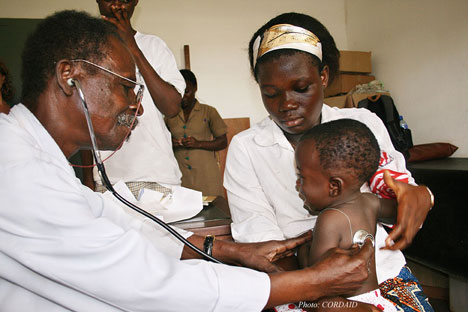
Northern Kentucky health officials will immunize childcare providers against whooping cough to help stop the spread of the disease.
The campaign, which begins this month, is part of a national effort to encourage adults to get vaccinated against the disease, which can be fatal in babies and very young children.
“People associate pertussis (whooping cough) as a childhood disease, but it’s not,” said Joyce Rice, an epidemiologist with the Northern Kentucky Health Department.
Anyone can catch the disease and spread it, experts say.
Whooping cough cases have skyrocketed across the country. in Kentucky, 47 cases were recorded statewide in 2007. By December 2010, the state recorded 250 cases.
In Northern Kentucky, health officials recorded 127 cases in 2010, compared to 38 in 2009, Rice said.
In Ohio, more than 1,500 cases of whooping cough were reported by mid-November 2010, compared to 995 cases at the same time in 2009.
Whooping cough is one of those diseases that comes and goes. Hamilton County saw a spike in cases in 2008, and cases have been on the decline since.
In 2009, more than 17,000 cases of whooping cough were recorded in the United States, and the nation saw a 60 percent increase in cases in infants 6 months and younger between 2008 and 2009.
About 76 percent of babies in the U.S. get immunized against whooping cough in a series of four shots administered between 8 weeks and 15 to 18 months.
But those vaccinations don’t offer permanent protectionPublic health officials say it’s likely older children and adults whose immunizations have worn off are spreading the infection to young children.
Ohio and Indiana this year began requiring students to get booster shots against tetanus, diphtheria and whooping cough. in Ohio, students must have it to begin seventh grade; Indiana requires students to get it on or after their 10th birthday.
Kentucky doesn’t specifically require a whooping cough booster, but it does require a tetanus/diphtheria booster for 11- and 12-year olds, and many providers use a vaccine that also includes whooping cough.
Public health officials are also working to raise awareness among adults that likely need a whooping cough booster shot.
The Northern Kentucky Health Department updates physicians weekly about the whooping cough cases they’ve recorded, and sends out information on how to recognize whooping cough symptoms and treat the infection.
Rice said the health department is also putting up brochures about whooping cough vaccinations for adults in libraries, stores and other public places.
Mary Ann Barnes, a physician at the St. Elizabeth Family Practice Center in Edgewood, sees adults with whooping cough regularly.
Few are aware they’re even at risk for the disease, she said, and even fewer know they should get a booster against it, she said.
Whooping cough is named for the distinct cough it causes in infants. Babies cough so hard they actually have to “whoop” to get more air into their lungs. in some cases, they cough so hard their ribs break.
“Adults typically don’t get the whoop,” Barnes said. Some may make a kind of rasping sound when they inhale, but adults – and their doctors – often think they have a bad cold or bronchitis.
The persistent cough is the key symptom, she said, and lab tests can determine if the infection really is whooping cough.
“If you get pertussis, you will cough. they used to call it the 100-day cough, because really, it will last for three months.”
There’s now an adult version of the triple vaccine that protects against tetanus, diphtheria and whooping cough. many doctors’ offices, including Barnes’, include a booster of it as part of their routine preventive health recommendation, along with mammograms, flu shots and colonoscopies.
Most adults are willing to get the shots once they know it means they’re less likely to spread the disease to children, Barnes said.
“In order to save babies’ lives, we’re immunizing adults,” Barnes said. “Who can argue with that?”